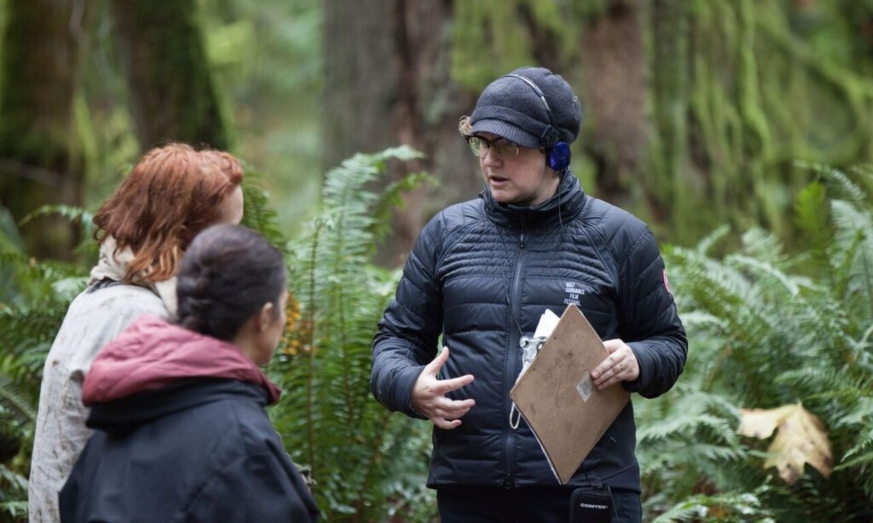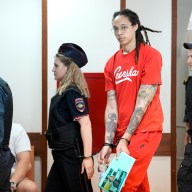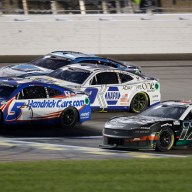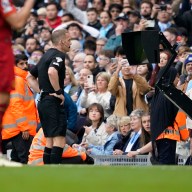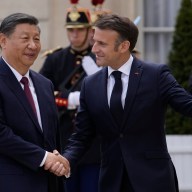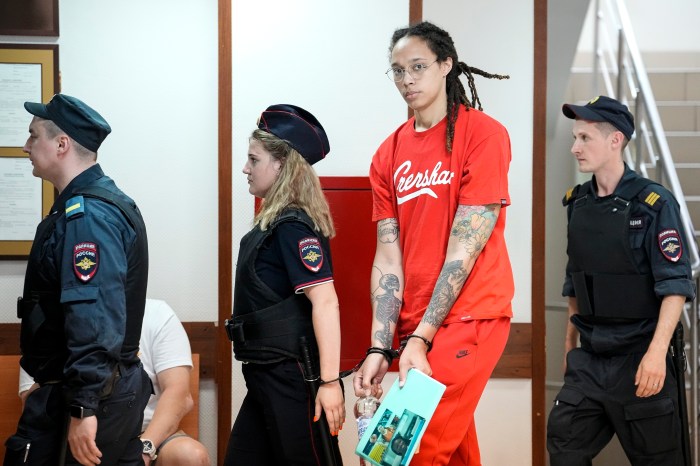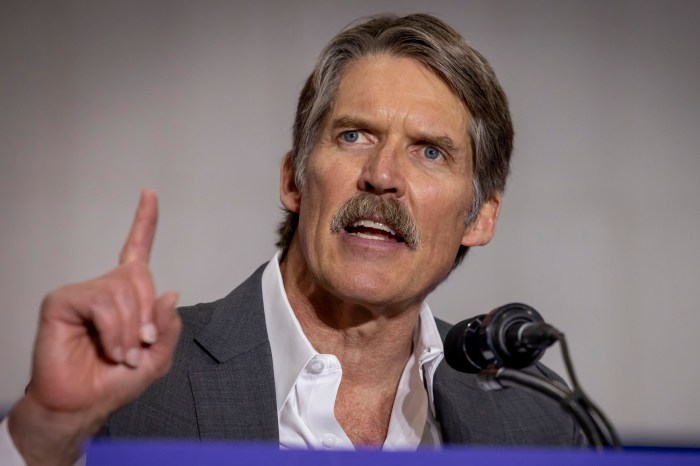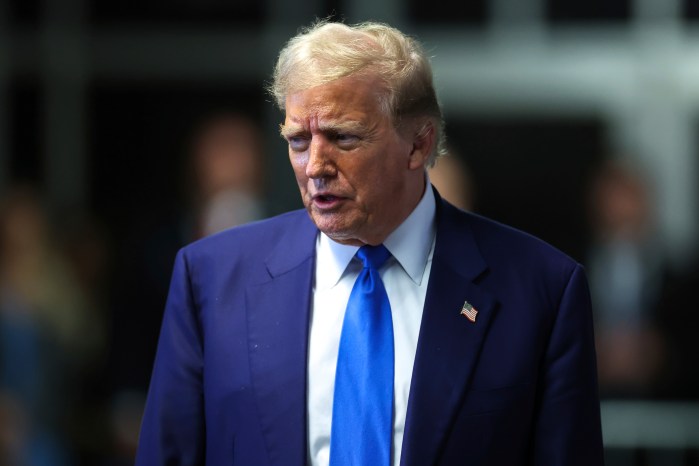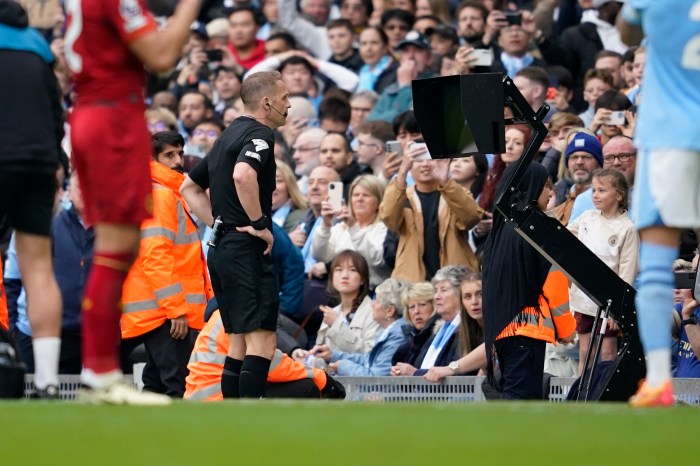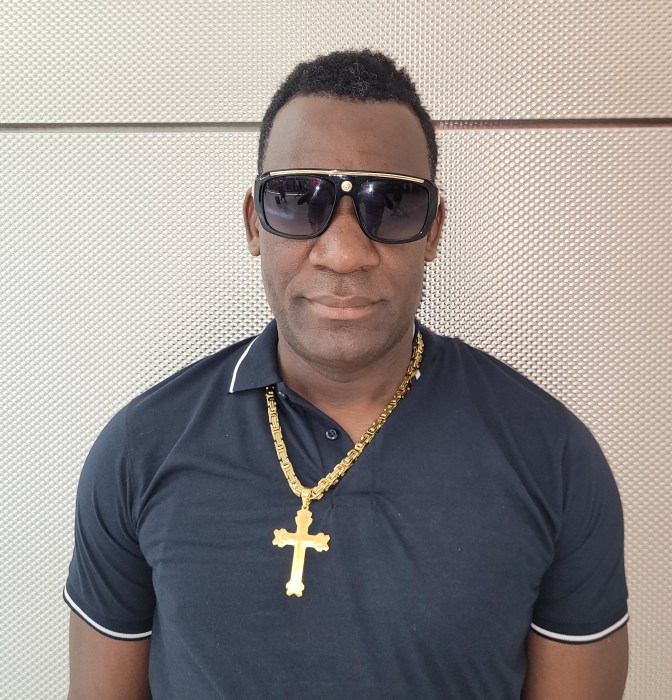You might not have heard of Nicole Perlman, but you’ve either already seen or plan on seeing one of the films she has worked on as a writer.
Not only has she did she do some uncredited work on “Thor,” but she also spent years researching and drafting “Guardians Of The Galaxy” before James Gun was hired to co-write and direct the film.
There’s plenty more to come from Perlman, too, as she has helped to scribe “Captain Marvel” and “Pokemon: Detective Pikachu,” both of which are out next year.
But the project she is most excited about is her directorial debut, “The Slows,” which is set in an enlightened future where humans are “accelerated” past their own childhoods, except in the wilderness where a small group of people give brith and raise their children the old fashioned way.
While her work and success within the studio system meant she probably could have overseen any number of mainstream projects, with “The Slows” Perlman decided to direct something a lot more personal.
That’s despite it being a short film rather than a feature.
“I wanted to be able to take risks,” Perlman recently explained to me over the phone.
“Pleasing certain markets with my first project as a director, that’s what I do with my day job as a screenwriter. I think about the wider market, the appeal, whether it will translate overseas.”
“This project I wanted it to be a creative risk. Cinereach was very encouraging of that.”
“And I thought this was my one chance so far to do something completely on my own terms and I felt like a short was a great platform to do that at this stage of my career.”
Perlman is so passionate about her adaptation of Gail Hareven’s story for the New Yorker that she is ultimately hoping to make it into a feature, although she insists that the short film was a very important first step.
“I definitely see this as a step to making a feature. I felt like this short story felt like something that had so much potential to go large.”
“I wanted to really challenge myself to pin it down to specific elements and interactions between two characters. That felt like a great place to build the world from.”
“To just have a real visual language that I developed in a limited form. So when I blow it up to a feature, this I see as a prologue to a feature.”
“I would have a firm sense on what my visual language was, what my aesthetic was, and feel confident about exploring these scenes in a deep way without having to worry about building that.”
“But that’s further down the line. I optioned a book to write and direct. There’s a lot more stories to tell in this world.”
“Cinereach was the fellowship that was the impetus for making this movie were incredibly supportive from the beginning, and if I wanted to make this a feature at the very beginning they would have supported that.”
“But I knew I wanted to make it as a short as my first step. I am pretty meticulous in my skills acquisition and the process in making sure that I am telling the right story and using the resources the best way I could.”
“I definitely want to make a feature as my next directing project, for sure.”
When it comes to potential feature films, Perlman is looking to once again take the kind of risks that led her to direct “The Slows.”
“If I am so lucky that I get to direct again I want to do it in a way that is best for the story and the characters and the idea.”
“Hopefully that story will be strong enough that it will appeal to a lot of people. I am less interested in telling a story that I have seen a lot before. I want to tell a stories that are under represented.”
“That’s one of the reasons I did ‘The Slows.’ Because I hadn’t seen a story that really explore childhood and motherhood from this alien perspective that was so human and explored the complexities of the contradictions that occur within that.”
“Also just the feeling of women looking across the divide of other women and trying to understand them. Or just humans looking at humans and trying to understand them even if they seem different and have a completely different value system.”
“I wanted to see more movies like that. I only want to direct stuff I am completely passionate about.”
“I don’t want to direct movies for mass consumption, unless they’re stories are very personal to me and something I feel passionate about.”
But while Perlman is obviously contemplating her future, she also insists that she feels “very lucky” to now be in a position to choose which projects she wants to be involved with and “which projects really speak” to her.
“That’s why directing the short film was such a change of pace. I went from being the writer to hire, doing a lot of studio work, being brought in by them if a story resonates, to ‘The Slows,’ which I had complete creative direction over it.”
“That was both exhilarating and a very risky thing to do. But I was so happy I took the risk. Because I feel like it paid off, both in terms of being able to tell a story visually and providing a counter balance to the studio side.”
“The Slows” celebrates it’s NY premiere on Sat. 9/29 and Sun. 9/30 at the 56th New York Film Festival as part of the Genre Stories Shorts Program. Perlman will be in attendance for post-screening Q&As.
You can read more from my interview with her below, too.
When did you first read the short story that inspired the film?
When I first moved to Los Angeles in 2009 I was still missing New York so I kept my subscription to the New Yorker and the New York Times. I remember reading the story and thinking this is one of the most interesting stories I had read in a long time because it really put you in a foreign perspective that was still human. It wasn’t alien perse, but it was set so far in the future that none of the societal norms we take for granted were relevant. I love stories that make you take a look at whatever you take for granted from a different perspective and start to investigate and question your place in that particular time period. It was also dealing with a lot of things that I found very resonant to me at the time. When you are in your 30s as a woman there are a lot of questions about child birth and motherhood and what you want to do with that. So it rang my bell. I thought, if I could ever direct a short film this is what I would want to do. I didn’t want to set it up a studio and have someone else come onboard and put their vision on. I really wanted it to be for myself.
What did you want to do with the story?
The first thing that usually comes to me in the scriptwriting process is the perspective of the character. I was immediately intrigued by these characters. The short story is just two people alone in a room having a discussion about a much larger conflict that is happening in the world and a sort of pot that is beginning to boil between these two different societies. I was very drawn to both characters and their perspectives on each other. The idea that this antagonist was a very brave, vulnerable woman who was bearing a child, and he didn’t see her as a human being, I found that so appalling and intriguing. Because this was a complete reversal of how we feel about vulnerable, brave people. I just wanted to learn more about this character and this world. The short story did a wonderful job of starting to explore how that mindset came to be. When I adapted it, though, I wanted the conflict not to be between a man and a woman, but two women. Because there are so many ideas in that short story that are worthy of exploration. But I really wanted to take way the gendered element and look at two different women with two different perspective on what it means to live a good life. And how did it get that way. And how is it possible to dehumanize a person so intensely. What would it take to turn that person around and see the opposite again. I feel right now, especially in the political climate where we are so divided, it is really hard to imagine coming to understand the other person’s perspective. But I feel like that’s really the work of being compassionate with your characters and trying to understand where they are coming from.
What were the challenges of building this world then?
This was a first for me, in terms of having full control of every way in which the story was told, and I absolutely loved it. It really challenged me to be very specific in my choices and vision. When I wrote the very first draft of this adaptation I made it very close to the original draft of the short story. Partly because I thought it would be a fun challenge to see if I could build this world just with two people having a conversation. I loved David Lowery’s short film “Pioneer,” which is a short film between a man and his son and you really feel this epic history just from this conversation. So I was coming at it from that perspective, but after the first draft I realize that there was just so much to build there that I had to take these two people out of this room and show the world that they are from so that we could really empathize with the mindset.
How has directing impacted your writing?
It really impacted my writing in a very positive way. Part of it is knowing what can be said with just a look or a touch and not needing everything to quite be so spelled out. That totally helped my efficiency as a screenwriter. I think that obviously screenwriting is a visual medium. But it made me use my visual language more than I necessarily do as a screenwriter. Especially as a screenwriter who started as a playwright. It almost brought my toolbox more into balance. One of the thing that prepared me really well for directing was writing a comic-book. Because writing the descriptions of my panels for my artist had me think in terms of efficiency of visual language, and specificity. That was enormously helpful. I feel like everything that uses your brain in slightly different ways helps to beef up your other skills. I ended up doing as much as I can in storytelling.
What did you bring from writing blockbusters for studios to the world of short film?
With both studio and indie films you want to tell the best possible story motivated by character and emotion. Those are things I care about whether it is “The Slows” or “Detective Pikachu.” One of the things that helped me with ‘The Slows’ after working with the studios was I think that I am more willing to think in a story first perspective. Sometimes my producers would flinch if I said we needed a prologue showing the molecular process happening during the acceleration process. In the studio world they encourage you thinking outside of the box creatively. With a studio they don’t want you to think of the budget, they just want you to do what’s best for the story. We had to pull in some favors to get our opening scene of this, but everyone hustled so hard and I am so grateful for their passion, work and talent. But the ability to say, ‘This is what’s best for the story.’ I might not have thought that if I hadn’t been trained to not think about the budget.
What can you say about “Pokemon: Detective Pikachu”?
It is a fun, mystery, romp adventure story. It is exactly what you are probably imagining it to be in terms of a great kids movie that appeals to a lot of all ages, with its characters. Like with Goosebumps, Rob Letterman does a great job with taking material and really bringing a lot of heart to it. I think that will be an experience that everyone takes away from it. I was really drawn to the world building elements of it and I like the challenge of crafting a new world that has potentially a lot of interesting backstory and history, and finding a way to make that cinematic and fun and accessible for people new to the franchise.
Is it all animated?
It is live action with a lot of animated side characters in it.
How close did you come to writing a “Labyrinth” sequel?
I didn’t actually write a Labyrinth sequel. I never wrote a script. I was helping to develop story ideas for it with the Henson company. That was before David Bowie died. Then after David Bowie died we had some disagreements with how to proceed with the story so I chose not to write a screenplay for Labyrinth 2. That’s why I never talk about it in interviews. Because I never actually wrote a screenplay for it. I don’t know if it is actually going to happen or not. I had very specific ideas on what would be the best way moving forward and I didn’t want to do anything that potentially went off from what went off about the original movie.

